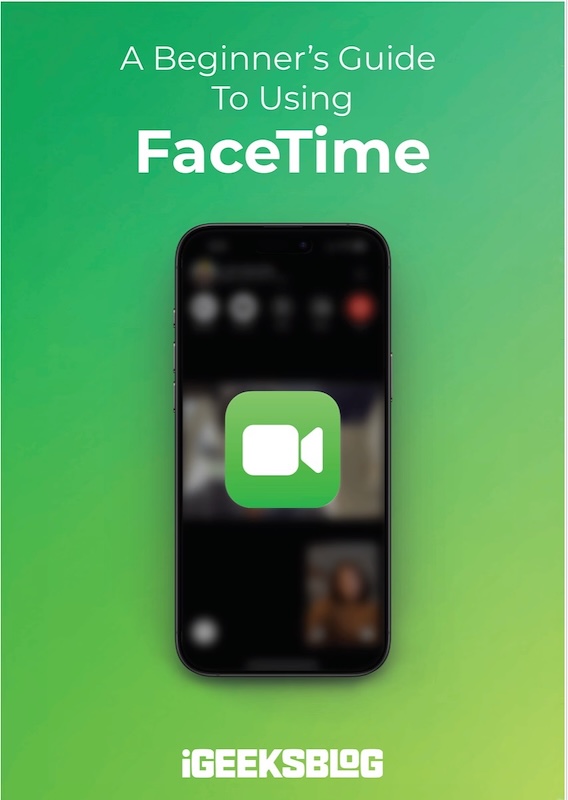
FaceTime Like a Pro
Get our exclusive Ultimate FaceTime Guide 📚 — absolutely FREE when you sign up for our newsletter below.

FaceTime Like a Pro
Get our exclusive Ultimate FaceTime Guide 📚 — absolutely FREE when you sign up for our newsletter below.
Discover Apple’s 2025 updated App Store policy changes, including new age ratings, third-party payments, side loading, and lower commissions.
2025 marks the year Apple introduced one of the most significant updates to its App Store policy in recent history. While some changes were aimed at making the App Store more trustworthy, others stemmed from increasing regulatory pressure. The past few years saw the U.S. Department of Justice (DOJ) lawsuit and the EU’s enforcement of the DMA, forcing Apple to loosen its once tightly controlled ecosystem.
Significant changes, such as new payment rules in the U.S. and sweeping reforms in the EU, reshape how developers operate and how users experience apps. Here’s a deep dive into everything that’s changed, what it means for you, and how to stay ahead of the curve.
Starting May 1, 2025, Apple updated its App Store guidelines to comply with the regulatory pressure, most of which is due to the U.S. court ruling in the Epic Games v. Apple case. Here’s what changed:
Apple rolled out some major structural changes to its in-app purchase rules to comply with the European Union’s Digital Markets Act.
Starting January 1, 2026, Apple will completely phase out the Core Technology Fee and transition fully to the proposed sales-based commissions.
For the first time, users in the European Union can sideload apps from alternative app marketplaces or developer websites on their iPhones running iOS 18.6 or later. While this is currently limited to the EU, it definitely sets a precedent for further expansion in the U.S and other regions in the future.
Apple now demands stricter transparency in how developers disclose user data handling, fees, and app content. While the review process is now more streamlined, compliance checks are more rigorous, primarily concerning privacy and security.
Furthermore, Apple has also let go of the older 4+ and 9+ age rating structure for a more granular age rating structure (13+, 16+, 18+). Starting January 31, 2026, app developers must complete a new age-rating questionnaire covering content and app features if they want to submit a new app to the App Store.
Fortunately, existing apps have been automatically re-rated, with developers able to adjust ratings upward if needed.
Not all the App Store policy changes we discussed above apply to all regions; some apply just to the U.S., some only to the EU, and only a few apply globally.
On one hand, these changes in Apple’s App Store policy open doors for new opportunities, but also add new responsibilities.
With these updated App Store policies, iPhone and iPad, especially in the EU region, can enjoy greater app usage and payment flexibility:
To be clear, Apple did not introduce a majority of the discussed changes on its own will; instead, the driving forces were regulatory pressure, legal rulings, developer and consumer pressure.
While small independent developers have gladly welcomed the reductions and flexibility, large studios are cautiously optimistic but cite increased complexity.
Most large developers have also expressed their displeasure by raising concerns about Apple’s retained gatekeeping and practical limitations on sideloading.
Apart from app developers, industry analysts have also expressed mixed reactions over the matter. While some have applauded these changes as “reluctant but necessary,” some worry that Apple still holds too much power through technical and security requirements imposed on rivals.
As antitrust scrutiny grows, which is a sure thing given the current scenario, Apple might need to extend the current region-specific App Store rules, such as alternative payment and app access options, to more regions in the near future.
The global rollout of these changes depends on whether Apple is willing to do so or if other regions adopt similar regulations, pushing Apple toward a more open ecosystem.
The 2025 Apple App Store policy overhaul represents a turning point in the iOS ecosystem for both developers and users alike. Developers can rethink monetization strategies and distribution channels, and users can enjoy apps available outside the App Store.
What’s your take on Apple’s new App Store policies and age ratings? Share your opinion in the comments below.
FAQs
Allowance of third-party payment systems, the possibility for app sideloading in the EU, reduced commissions, and stricter data transparency are among the few significant App Store policy changes that took place in 2025.
Yes, but only in the European Union as of late 2025. Other regions remain closed to sideloading for now.
How much commission does Apple now charge?
Commissions in the EU can drop as low as 10-13% for small businesses with external payments, and up to 17-20% for direct App Store payments. Elsewhere, the standard 15-30% still applies.
How do these changes affect app users?
Users in the EU will enjoy access to more apps and payment options, but should be aware of new security considerations.